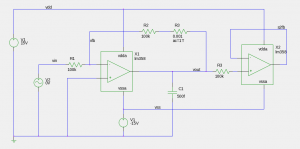EDS VLSI Technology and Circuits Technical Committee Report
The VLSI Technology and Circuits Technical Committee was formed in 1998 under the leadership of Professor Charles G. Sodini (MIT) and followed by Dr. H.-S. Philip Wong (IBM), Werner Weber (Infineon), Dr. James A. Hutchby (SRC) and Dr. Bin Zhao (Freescale Semiconductor). Since its formation, the VLSI Committee has made it their mission to identify new technical trends, help foster new technical concepts, and serve the emerging needs of the Electron Devices and Solid-State Circuits communities in VLSI. The committee members include many well recognized technical experts representing a very wide spectrum of technical expertise in VLSI devices, technology, and circuits. Every year the committee brainstorms (by email), ideas that are suitable for new workshops, special issues for a journals, panel sessions, and special sessions for conferences. Committee members then drive these ideas forward and find a way to make them happen; either by being the organizers themselves, or by finding suitable organizers for the topic. They work closely together with journal editors and conference organizers. It is much easier to attach new workshops to existing conferences, than to establish new conferences.
[read more at http://eds.ieee.org/eds-newsletters.html]

